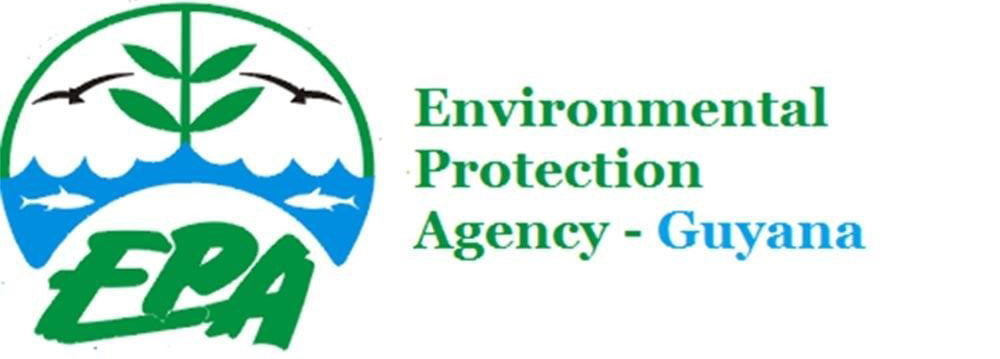The Environmental Protec-tion Agency (EPA) has filed its appeal against the ruling of High Court Judge Sandil Kissoon that it had breached the Act and shirked its legal responsibility in failing to enforce the liability clause in the permits issued to ExxonMobil Guyana for its offshore oil operations.
Last Wednesday, Justice Kissoon said the EPA had abdicated its responsibilities “…thereby putting this nation and its people in grave potential danger of calamitous disaster.”
The judge bluntly said that the circumstances giving rise to the action disclosed the existence of an “egregious” state of affairs that has engulfed the agency which he described as “submissive,” and in a quagmire of its own making.

In its appeal asking for a stay of the judgement and all its orders, the EPA argued through its attorney Sanjeev Datadin that the judge’s finding that the financial assurances set out in the permit were “unlimited;”was a flawed line of reasoning.
Describing the order made by the court that the permit stands suspended for breach of the Environ-mental Protection Act as “coercive”, the EPA contended that this will have severe consequences.
The appellant argued also, that the directions given by the court have the effect of entirely removing its discretion, while adding that there would be “severe disruption to the national economy and financial well-being of the public and private sector.”
Describing Guyana as the “fastest growing economy in the world,” which it said was a “notorious public fact…due in large part to the exploitation” of its petroleum, the EPA said the order made by the court was critical to Guyana’s economic activity.
It said that Guyana now earns billions annually from its petroleum conducted on the Liza 1 and Liza 2 fields, both of which are subject to the permit. Against this background, the EPA advanced that suspension or cancellation would have a “catastrophic effect” on national funds for development and also the private sector which supports the activities on both Liza 1 and 2.
Advancing that its appeal has “a very good chance of success,” the EPA said, among other things, that the statutory underpinning for ‘financial assurance’ as it relates to its powers are set out in the Act.
The agency said Section 31(2) of the Act mandates that “the [financial assurance in any permit] shall specify the amount of financial assurance and may provide that the financial assurance may be provided, reduced or released in stages …”.
It stated that the Permit at Clause 14 provides for the financial assurance to be provided by Esso Exploration and Produc-tion Guyana Limited (EEPGL), and the consequences of any failure to so provide.
It argued that the provision of an unlimited guarantee was not contemplated by the Act.
Additionally, it said, the Permit is a contract between the parties and “cannot be, in law, afforded an interpretation and application that would have the effect of overriding the clear provisions of the Act.
“It is the Act that prevails in any difference between the Act and the Permit… there is indeed no discrepancy between the Act and the Permit.”
On the issue of its discretion, the EPA said the Act bestows this on the agency and it was therefore entitled to use it. “It is difficult for a court to direct and compel the exercise of the discretion of a public body when the choices available to the public body are equally meritorious,” the EPA said.
Background
In his ruling, Justice Kissoon said of the EPA, “It has abdicated the exclusive statutory responsibilities entrusted to it by Par-liament under the Environ-mental Protection Act 1996 and the Environmental Protection Regulations 2000 to ensure due compliance by Esso Exploration and Produc-tion Guyana Limited.”
President of the Trans-parency Institute of Guy-ana Inc (TIGI) Fredericks Collins and another Guyanese citizen, Godfrey Whyte, had moved to the court last year to get the EPA to enforce the liability clause in the permits issued to ExxonMobil Guyana for its offshore oil operations.
The litigants had said that the resort to the court was to make sure that the company took full financial responsibility in case of harm, loss and damage to the environment. ExxonMobil’s local affiliate, EEPGL, has agreed in the permit to provide insurance and an unlimited parent company indemnity to cover all environmental loss and damage that might result from a well blowout, oil spill or other failures in the Liza 1 Development Project in Guyana’s Stabroek Block.
The duo, through their battery of attorneys led by Senior Counsel Seenath Jairam, had told the court that “…the agency, through its human minds, including its officers has failed or omitted to carry out or to show that it has carried out its legal duties and or obligations thereby amounting to misfeasance in public office by them and by failing or omitting to act, has acted unreasonably, irregularly or improperly and or has abused its power.”
Collins, in a statement, had said “I can’t even drive my car without insurance. So it is incomprehensible that the government would allow Esso to operate without any form of insurance. An oil spill would be devastating for our country and region as many Guyanese and Caribbean peoples depend on the ocean for their livelihoods. That is why we have decided that the time has come to take matters to the court for relief.”
Justice Kissoon had said that in the course of the proceedings, the court found on the evidence that EEPGL was engaged in a “disingenuous attempt which was calculated to deceive when it sought to dilute its liabilities and settled obligations stipulated and expressed in clear unambiguous terms at Condition 14 of the Environmental Permit (Renewed) while simultaneously optimising production at the Liza Phase 1 Petroleum Production Project in the Stabroek Block Offshore Guyana.”
Directly calling out the EPA, the judge said EEPGL “engaged in a course of action made permissible only by the omissions of a derelict, pliant and submissive Environmental Protection Agency.”
He said that the proceedings brought to the fore the adage, “but for the vigilance of citizens society shall perish.”
The court said it found that Esso was never in doubt as to what its liabilities were as captured under Condition 14 of the Permit, as the stipulations were neither unusual, unique or unauthorised.
Justice Kissoon went on to grant Collins and Whyte the orders they sought in the form of declarations. He also awarded them costs in the sum of $1,500,000.
The judge ordered the EPA to issue an Enforcement Notice pursuant to Section 26 (1) and (2) of the Environmental Protection Act, no later than this past Tuesday, directing EEPGL to perform its obligations under the Permit and to provide, within 30 days thereafter, the unlimited liability Parent Company Guarantee Agreement and/or unlimited liability Affiliate Company Guarantee to indemnify and keep indemnified the Government of Guyana and the agency against all such environmental obligations of Esso and its co-venturers within the Stabroek block, together with environmental liability insurance as is customary in the international petroleum industry in accordance with the Conditions 14 from an insurance company standing and repute that equates to Grade A Plus as envisaged by Condition 14.
Failure to comply with the order, the judge has said, would result in the Permit being suspended.






